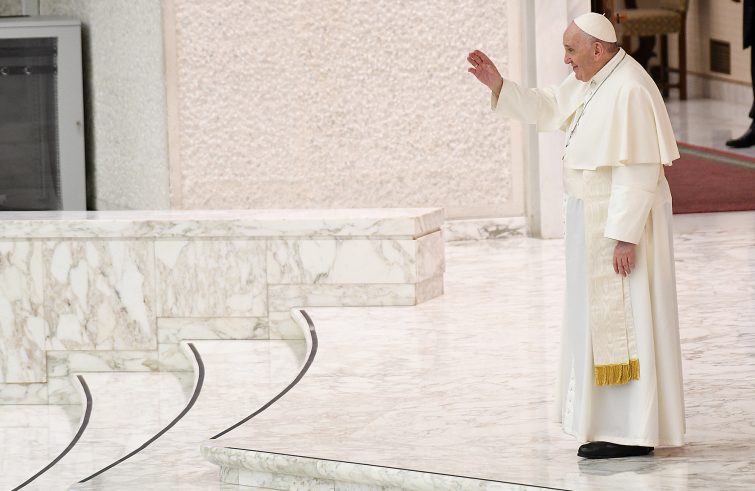
The Pope has a dream. Once again. As on so many previous occasions, when he dreamed of world peace, social justice, care for the most vulnerable, a future for the young, interfaith dialogue, a Church that goes forth, universal human fraternity. Bergoglio once again dreams of Europe, “a friend to each and all”; to serve as “a family and a community” based on “solidarity”; a Europe that is “fraternal”, “generous” and “a neighbour to others”; a Europe marked by “a healthy secularism, where God and Caesar remain distinct but not opposed”, “a land open to transcendence.”
Francis addressed a letter to Secretary of State Cardinal Pietro Parolin on the 40th anniversary of the Commission of the Bishops’ Conferences of the European Community (COMECE), the 50th anniversary of the establishment of diplomatic relations between the Holy See and the European Union, and the 50th anniversary of the presence of the Holy See as Permanent Observer at the Council of Europe.
In the letter due reference is made to the Schuman Declaration that 70 years ago set in motion the political and economic integration process after the tragedies of World War II.
The letter was thus received today in Brussels hosting the COMECE Assembly, which Cardinal Parolin was supposed to attend in person. The Pope entrusts the Secretary of State with a message of strong encouragement to European bishops and EU institutions. In the letter, Francis recalls the central role that Europe has today, which is “is all the more pertinent in the context of the pandemic we are now experiencing. In fact, “the European project arose from a determination to end past divisions. It was born of the realisation “that unity is greater than conflict.” In our days marked by “a growing tendency for all to go their own separate ways – writes the Holy Father – the pandemic has emerged as a kind of a watershed, forcing us to take a stand. We can either continue to pursue the path we have taken in the past decade, yielding to the temptation to autonomy and thus to ever greater misunderstanding, disagreement and conflict, or we can rediscover the path of fraternity that inspired and guided the founders of modern Europe, beginning precisely with Robert Schuman.”
The Pope’s dreams are not utopian dreams or fleeting chimeras, delusions, mirages.
Instead, they are marked by explicit concreteness, by a planned, constructive horizon. Bergoglio’s dreams of Europe come at a time when the Old Continent is again under siege, struggling with a virus that spreads disease and claims victims; a continent marked by new, precautionary and dutiful neighbours. The health emergency is causing an economic recession with severe impact on businesses and families, threatening to spark off a social crisis with unpredictable repercussions on people’s lives. But Europe is under siege also on other fronts: Covid-deniers are taking to the streets- frequently replicating violent and updated populist protests -, surrounded by mounting regional and national crises, such as in Ukraine, Belarus, Syria, Libya, Turkey (with Erdogan politically and recklessly attacking France currently coping with the dramatic impact of the coronavirus). Europe is confronted also by further challenges – certainly not eradicated by Covid-19 – such as the poverty of a part of the European population, immigration from Africa and the Middle East, the impact of climate change etc…This Europe, once again direly strained by historical challenges, is the focus of the Pope’s exhortations which, if embraced and given their rightful historical value, would help us tackle current challenges with courage, determination, unity and a spirit of solidarity.
“Europe, find yourself! Rediscover your most deeply-rooted ideals. Be yourself! Do not be afraid of your millenary history, which is a window open to the future more than the past…”, writes Francis.
“What kind of Europe do we envision for the future? What is to be its distinctive contribution? In today’s world, it is not about recovering political hegemony or geographical centrality, or about developing innovative solutions to economic and social problems. The uniqueness of Europe rests above all on its conception of the human being and of reality, on its capacity for initiative and on its spirit of practical solidarity.” These words will be debated during the COMECE Assembly and will be brought to the attention of EU institutions by Cardinal Parolin. They will walk with the legs of the women and men of Europe.









